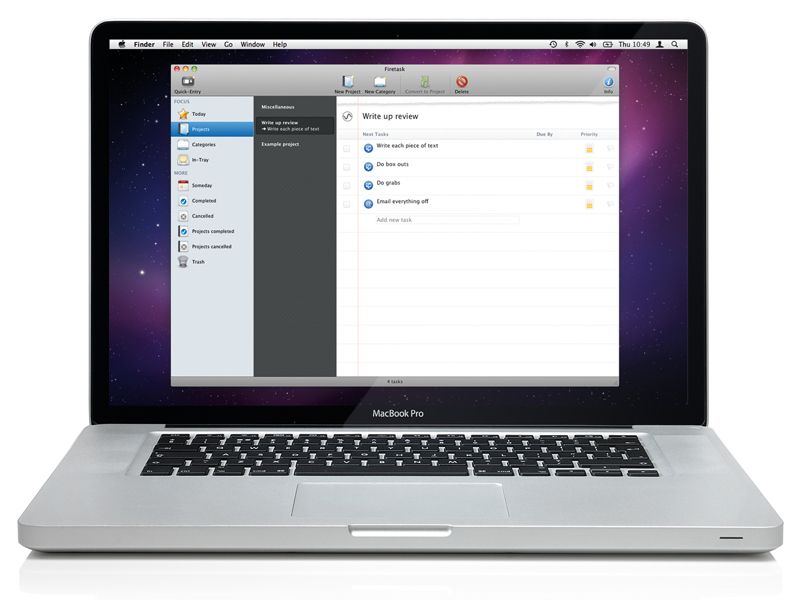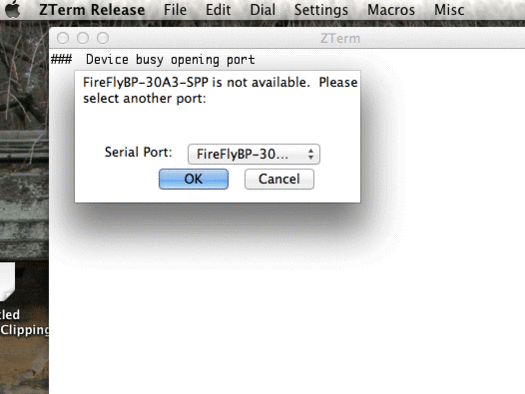zzuf is a transparent application input fuzzing tool or fuzzer. Its purpose is to find bugs in applications by corrupting their user-contributed data (which more than often comes from untrusted sources on the Internet). It works by intercepting file and network operations and changing random bits in the program’s input.
zzuf’s behaviour is deterministic, making it easier to reproduce bugs.
Fuzz Testing of Application Reliability Classic fuzz testing is a simple technique for feeding random input to applications. While random testing is a time-honored technique, our approach has three characteristics that, when taken together, makes it somewhat different from other approaches. The input is random. Zzuf – Multi-Purpose Application Input Fuzzing Tool. Zzuf is a transparent application input fuzzing tool or fuzzer. Its purpose is to find bugs in applications by corrupting their user-contributed data (which more than often comes from untrusted sources on the Internet). It works by intercepting file and network operations and changing random bits in the program’s input.
Its main areas of use are:
- quality assurance: use zzuf to test existing software, or integrate it into your own software’s testsuite
- security: very often, segmentation faults or memory corruption issues mean a potential security hole, zzuf helps exposing some of them
- code coverage analysis: use zzuf to maximise code coverage
zzuf’s primary target is media players, image viewers and web browsers, because the data they process is inherently insecure, but it was also successfully used to find bugs in system utilities such as objdump.
zzuf is not rocket science: the idea of fuzzing input data is barely new, but zzuf’s main purpose is to make things easier and automated.
You can download zzuf here:
Mac OS X universal binary: zzuf-osx-0.13.tar.gz
Latest Source from Github: master.zip
Or read more here.
OS X Auditor is a tool for forensic Mac OS X computer, this tool can analyze kernel, user, application, third party, malware and more on Mac OS computer. If you want to investigate your Mac you have to try this tool.

Introduction
OS X Auditor is a free Mac OS X computer forensics tool.
OS X Auditor parses and hashes the following artifacts on the running system or a copy of a system you want to analyze :
- the kernel extensions
- the system agents and daemons
- the third party’s agents and daemons
- the old and deprecated system and third party’s startup items
- the users’ agents
- the users’ downloaded files
- the installed applications
It extracts :
- the users’ quarantined files
- the users’ Safari history, downloads, topsites, LastSession, HTML5 databases and localstore
- the users’ Firefox cookies, downloads, formhistory, permissions, places and signons
- the users’ Chrome history and archives history, cookies, login data, top sites, web data, HTML5 databases and local storage
- the users’ social and email accounts
- the WiFi access points the audited system has been connected to (and tries to geolocate them)
It also looks for suspicious keywords in the .plist themselves.
It can verify the reputation of each file on :
- Team Cymru’s MHR
- VirusTotal
- your own local database
It can aggregate all logs from the following directories into a zipball :
- /var/log (-> /private/var/log)
- /Library/logs
- the user’s ~/Library/logs
Finally, the results can be :
- rendered as a simple txt log file (so you can cat-pipe-grep in them… or just grep)
- rendered as a HTML log file
- sent to a Syslog server
Author
Jean-Philippe Teissier – @Jipe_ & al.
Development status
OS X Auditor IS NO LONGER MAINTAINED – YOU SHOULD NOT USE IT
Support
OS X Auditor started as a week-end project and is no longermaintained. It has been forked by the great guys @ Yelp who createdosxcollector. How do i recall an email in outlook 2016 for mac.
I do recommend you to use to osxcollector (https://github.com/Yelp/osxcollector)
How to install
Just copy all files from GitHub.
Dependencies
If you plan to run OS X Auditor on a Mac, you will get a full plist parsing support with the OS X Foundation through pyobjc :
If you can’t install pyobjc or if you plan to run OS X Auditor on another OS than Mac OS X, you may experience some troubles with the plist parsing :
These dependencies will be removed when a working native plist module will be available in python.
How to run
- OS X Auditor runs well with python >= 2.7.2 (2.7.9 is OK). It does not run with a different version of python yet (due to the plist nightmare)
- OS X Auditor is maintained to work on the lastest OS X version. It will do its best on older OS X versions.
- You must run it as root (or via sudo) if you want to use is on a running system, otherwise it won’t be able to access some system and other users’ files
- If you’re using API keys from environment variables (see below), you need to use the
sudo -Eto use the users environment variables
Type osxauditor.py -h to get all the available options, then run it with the selected options eg. [sudo -E] python osxauditor.py -a -m -l localhashes.db -H log.html
Setting Environment Variables
VirusTotal API :
exportVT_API_KEY=aaaabbbbccccddddeeee
Changelog
0.4.3
- FIX:(lots of) Bug fixes – See https://github.com/jipegit/OSXAuditor/issues
- CHANGE: Malware.lu hash check removed – service not available anymore
Fuzzing Tool For Mac Os X 10.11
0.4.2
- CHANGE: Moved API keys from in the code to environment variables
0.4.1
- CHANGE: Search for generic backdoors in LaunchAgentPlist

0.4
- NEW: extracts events (boot/shutdown, hibernation in/out, sudo commands, usb devices, ttys opened/closed, from the system logs and create a (not readable yet) timeline (-e/eventlogs)
- NEW: extracts users’ LoginItems
- NEW: extracts users’ RecentItems
- NEW: extracts the LastSession from Safari artifacts
- NEW: extract system groups and users details
- FIX: wrong os.path.join() calls
- FIX: bug in the recursive ParsePackagesDir()
0.3.1
- NEW: provides with the system name, version and build of the audited system
- NEW: ability to analyze installed Applications (-i/–installedapps)
- NEW: extracts the Archived History from Google Chrome artifacts
- NEW: a human readable HTML log report 🙂
- FIX: HTMLLog() and SYSLOGLog() now handle exceptions
- FIX: ParsePackagesDir() is now recursive and only tries to parse apps or kernel extensions. Some DEBUG output added as well
- FIX: HUGE UTF-8/UNICODE improvement
- FIX: .DS_Store and .localized files are ignored in ParsePackagesDir()
0.3
- NEW: ability to parse Google Chrome artifacts (History and archives history, Cookies, Login Data, Top Sites, Web Data, HTML5 databases and local storage) with -b/–browsers
- NEW: ability to extract the Wi-Fi APs the audited system has been connected to from the Airport Preferences and tries to geolocate them using Geomena (-A/–airportprefs). You must use -g/–wifiapgeolocate to enable the geolocation (or set GEOLOCATE_WIFI_AP to True in the code).
- NEW: ability to extract users’ social and email accounts (-U/–usersaccounts)
- FIX: ability to handle the locked sqlite databases especially while auditing a live system
- FIX: hashes duplicates removed
- FIX: better identify md5 in the HTML output
- CHANGE: indicates if a section (Startup items, Packages directory, Db tables, etc…) is empty to clarify the output
- CHANGE: the downloads artifacts (-d/–downloads) include the old and new Mail.app default download directories
0.2.1
- CHANGE/FIX: implement a BigFileMd5() function to hash very big files, avoid MemoryError execptions and reduce the memory footprint
- FIX: UTF-8 entries from LSQuarantineEvent in ParseQuarantines()
0.2
- NEW: ability to send the results to a remote syslogd server (-S)
- NEW: ability to create a zipball of all the log files found on the audited system (-z)
- CHANGE: the analysis of startup artifacts includes the old and deprecated StartupItems
- CHANGE: the analysis of startup artifacts includes the ScriptingAdditions
- CHANGE: the analysis of quarantined artifact includes the old QuarantineEvents for Mac OS X systems <= 10.6
- CHANGE: great improvement of plist hangling using the Python ⟷ Objective-C bridge (PyObjC) and OS X Foundation
- CHANGE: some changes in the options parameters (-t, -l)
- CHANGE: license changed from CC to GPL
- CHANGE: debug levels are now more consitent in the output logs
- CHANGE: a small change with the Bootstrap CSS
- CHANGE: the VirusTotal lookup is now done in a bulk mode
- FIX: a bug in ParseLaunchAgents() on plist files containing both Program and ProgramArguments keys
0.1
- Initial Release
Design & Capabilities
Artifacts
Users
- Library/Preferences/com.apple.LaunchServices.QuarantineEventsV2
- Library/Preferences/com.apple.LaunchServices.QuarantineEvents
- Library/Preferences/com.apple.loginitems.plist
- Library/Mail Downloads/
- Library/Containers/com.apple.mail/Data/Library/Mail Downloads
- Library/Accounts/Accounts3.sqlite
- Library/Containers/com.apple.mail/Data/Library/Mail/V2/MailData/Accounts.plist
- Library/Preferences/com.apple.recentitems.plist
Firefox
- Library/Application Support/Firefox/Profiles/
- cookies.sqlite
- downloads.sqlite
- formhistory.sqlite
- places.sqlite
- signons.sqlite
- permissions.sqlite
- addons.sqlite
- extensions.sqlite
- content-prefs.sqlite
- healthreport.sqlite
- webappsstore.sqlite
Safari
- Library/Safari/
- Downloads.plist
- History.plist
- TopSites.plist
- LastSession.plist
- Databases
- LocalStorage
Chrome
Fuzzing Tool For Mac Os X 10.13
- Library/Application Support/Google/Chrome/Default/
- History
- Archived History
- Cookies
- Login Data
- Top Sites
- Web Data
- databases
- Local Storage
System

- /System/Library/LaunchAgents/
- /System/Library/LaunchDaemons/
- /System/Library/ScriptingAdditions/
- /System/Library/StartupItems/Library/ScriptingAdditions/
- /System/Library/Extensions/
- /System/Library/CoreServices/SystemVersion.plist
- /Library/LaunchAgents/
- /Library/LaunchDaemons/
- /Library/StartupItems/
- /Library/Preferences/SystemConfiguration/com.apple.airport.preferences.plist
- /Library/logs
- /var/log
- /etc/localtime
- StartupParameters.plist
- /private/var/db/dslocal/nodes/Default/groups/admin.plist
- /private/var/db/dslocal/nodes/Default/users
TODO
- extract user info from /private/var/db/dslocal/nodes/Default/users
Related work
Disk Arbitrator
Fuzzing Tool For Mac Os X 10.7
Disk Arbitrator is Mac OS X forensic utility designed to helpthe user ensure correct forensic procedures are followed during imaging of adisk device. Disk Arbitrator is essentially a user interface to the DiskArbitration framework, which enables a program to participate in the managementof block storage devices, including the automatic mounting of file systems.When enabled, Disk Arbitrator will block the mounting of file systems to avoidmounting as read-write and violating the integrity of the evidence.
Volafox
volafox a.k.a ‘Mac OS X Memory Analysis Toolkit’ is developed onpython 2.x
Mandiant Memoryze(tm) for theMac
Memoryze for the Mac is free memory forensic software that helpsincident responders find evil in memory… on Macs. Memoryze for the Mac canacquire and/or analyze memory images. Analysis can be performed on offlinememory images or on live systems.
Volatility MacMemoryForensics

Fuzzing Tool For Mac Os X 10.10
License
OS X Auditor Copyright (C) 2013-2015 Jean-Philippe Teissier

Dme mac region d supplier manualdwnloadblock. This program is free software: you can redistribute it and/ormodify it under the terms of the GNU General Public License as published by theFree Software Foundation, either version 3 of the License, or (at your option)any later version.
This program is distributed in the hope that it will be useful,but WITHOUT ANY WARRANTY; without even the implied warranty of MERCHANTABILITYor FITNESS FOR A PARTICULAR PURPOSE. See the GNU General Public License formore details.
You should have received a copy of the GNU General PublicLicense along with this program. If not, see http://www.gnu.org/licenses/.
Bootstrap and JQuery have their own GPL compatible licences.
